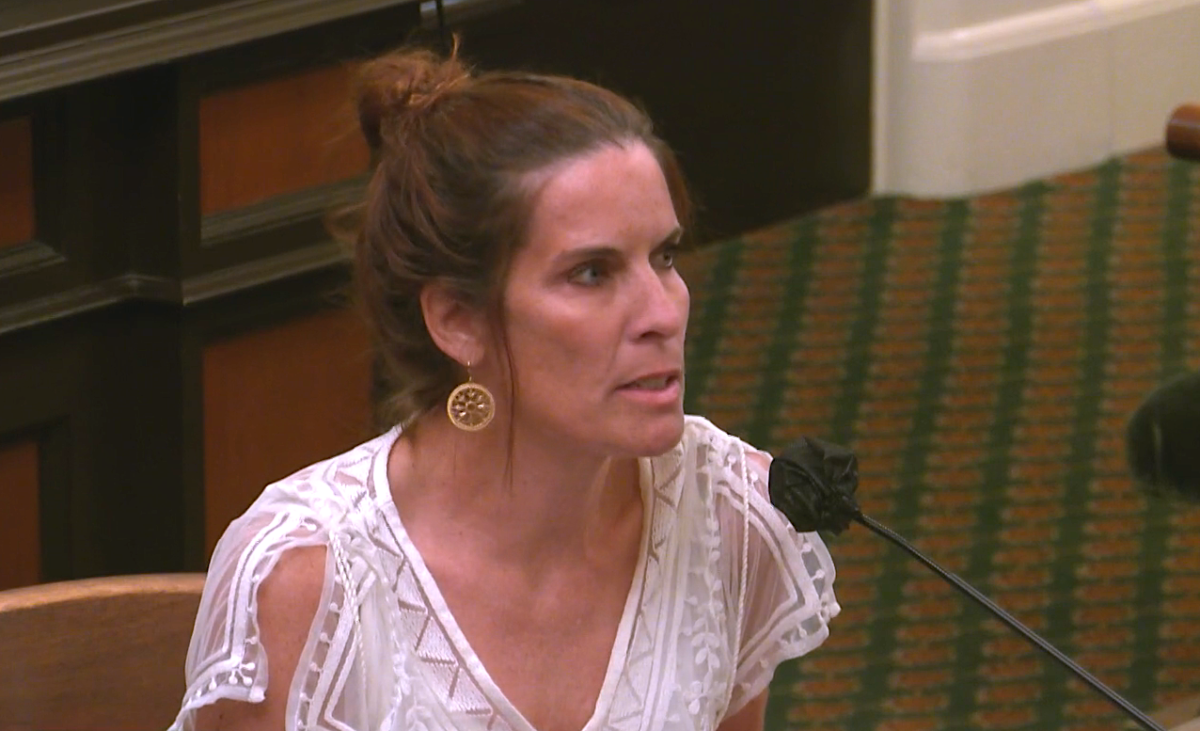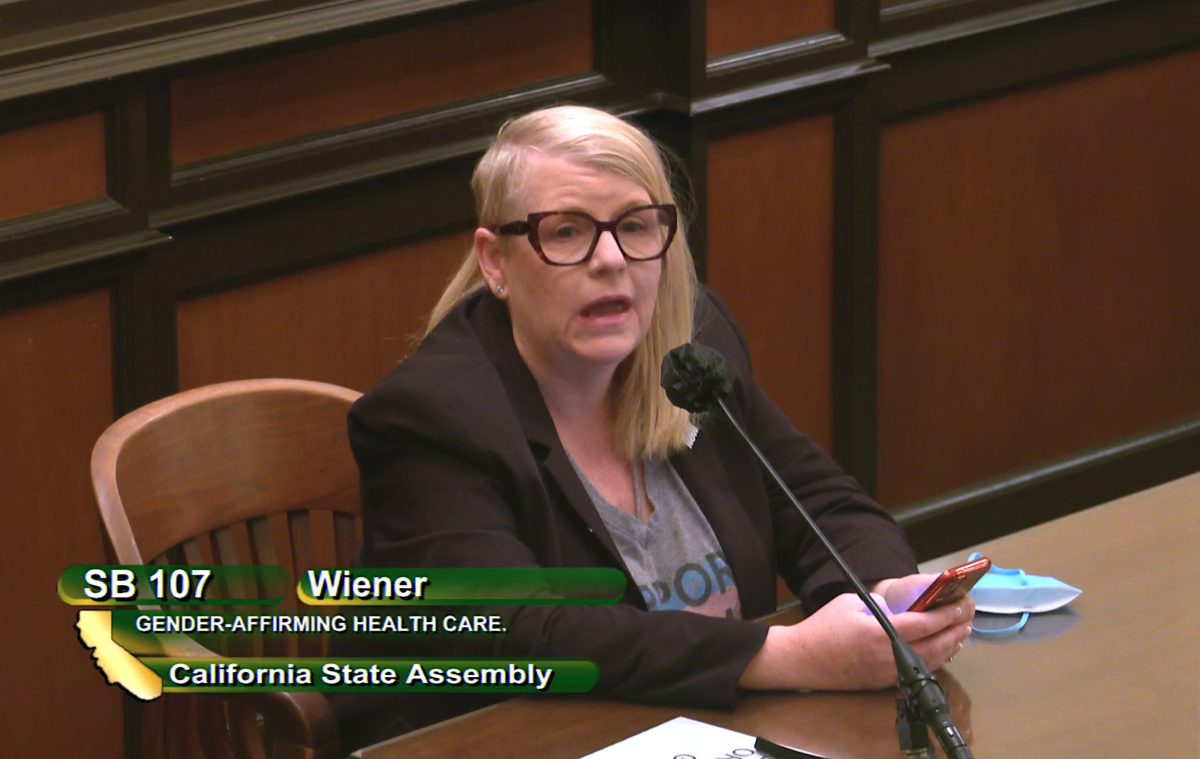


A California Assemblyman has proposed legislation to allow children who have filed petitions to change their legal names and gender identities to have these records sealed.
Assembly Bill 223 (AB 223), the Transgender Youth Privacy Act, would amend the state’s health and safety code to require the petitions of anyone under 18 for name and gender changes and any documents associated with such proceedings to be sealed.
“Being ‘outed’ is a traumatic event for anyone—but especially traumatic for someone under the age of 18 years old,” Assemblyman Chris Ward (D-San Diego) said in a press release.
The bill, which is expected to be heard in committee as early at Feb. 10 according to legislative documents, would give transgender youth the confidence “to navigate their gender identity without fear of retaliation” from anyone who discovers information in public records, Ward said.
Ward’s communications director, Mike Blount, told The Epoch Times in an email, that under existing law, parent authorization is required for changing vital records for minors “unless a court has emancipated them.”
Blount said AB 223 would not change the petition process but would ensure the petition records are sealed from general public discovery “as many of our documents have become digitized and are too easily accessible to those who would do these youth harm.”
Ward, a member of the state Democratic Party’s LGBTQ Caucus, cited a study conducted in 2017 and released in January 2019 by the U.S. Centers for Disease Control and Prevention (CDC) that found transgender youth are three times more likely to attempt suicide than their “cisgender” peers and are at higher risk of “violence, victimization, substance use and depression.”
The CDC study also found that an average of 1.8 percent of high school students identify as transgender, according to population-based survey data from 10 state and nine urban school districts.
However, the claims about suicide rates among transgender people have been widely disputed. For example, a Swedish study of 324 transgender individuals from 1973 to 2003 found sex-reassigned adults, compared to same birth sex controls, were 19 times more likely to commit suicide. The study shows deaths among transgender people increased sharply compared to other adults starting about 10 years after medical interventions.
Another study published by the American Urological Association in The Journal of Urology found that in California from 2012 to 2018, suicide attempt rates more than doubled among transgender patients after vaginoplasty or phalloplasty surgeries—3.3 percent post-surgery compared to 1.5 percent before. Also, the rate of psychiatric emergencies did not decrease in the two years after surgery compared to the two years before.
Erin Friday, an attorney and leader of the group Our Duty, California, which opposes gender ideology, told The Epoch Times the proposed legislation would make it impossible to track data such as “how many trans-identified youth commit suicide, how many are victims of crimes, or commit crimes, [and] how many end up in foster care, homeless or drug-addicted.”
Even though California law requires parental consent for a minor to legally change their name, Friday alleged Ward is “moving towards empowering minors without parental consent to have that right” in the last line of the bill, which states, “Allowing our children to choose when and how they decide to share their personal details is vital in protecting their mental and physical health.”
Matthew McReynolds, deputy chief counsel for the Pacific Justice Institute’s Center for Public Policy, warned against “government secrecy,” saying it rarely improves public safety.
“Any time a bill proposes to reduce transparency, even in the name of privacy, tough questions must be asked about the unintended consequences,” McReynolds told The Epoch Times. “Among many other things, this bill prompts as-yet unanswered concerns whether law enforcement and other authorities will be hampered in their ability to track offenders and suspects across changing identities and aliases. At a minimum, it should be amended to address such concerns.”
McReynolds also questioned how AB 223 would affect non-custodial parents, such as those who oppose transitioning their own children. He suggested that keeping them in the dark could be intended.
“I think it is very much part of the intent here,” he alleged.
Kathie Moehlig, executive director of TransFamily Support Services, said in the press release AB 223 would ensure the safety and privacy of transgender youth.
“By sealing the name and gender marker change records, we are bringing the courts in line with the laws around schools not outing students,” Moehlig said. “Often families were not even aware that these records are public until years after when a court order is discovered in a Google search of the youth’s name. Keeping these records public will put many students at high risk for bullying, hatred, and even violence.”
Last year, Moehlig testified at the state legislature in favor of Senate Bill 107, which made California a trans sanctuary state for transgender youth and their “gender-affirming” parents, and other legislation supporting “gender-affirming” care.
A source inside the state legislature who spoke on the condition of anonymity due to fear of retaliation told The Epoch Times that California government has already circumvented the law and parental rights, “if you look at how agencies and departments are currently operating and translating the law of this whole privacy concern.”
In California, under state-mandated gender non-disclosure policies, teachers are prohibited from revealing the chosen gender identities of students to parents without the child’s permission unless the school believes there is a “compelling” reason. The California Department of Education also requires all members of the “public school community,” including students, to use the preferred pronouns of others, on penalty of harassment charges.
Misgendering a transgender person by referring to them by their natal or birth gender instead of the person’s chosen identity, name or preferred pronouns is already being used by government agencies to remove a child from their parents’ home in cases where a parent refuses or is slow to accept a child’s transgender identity, the source said.
“They’ve also put forward the idea that to misgender someone is a hate crime,” said the source.



